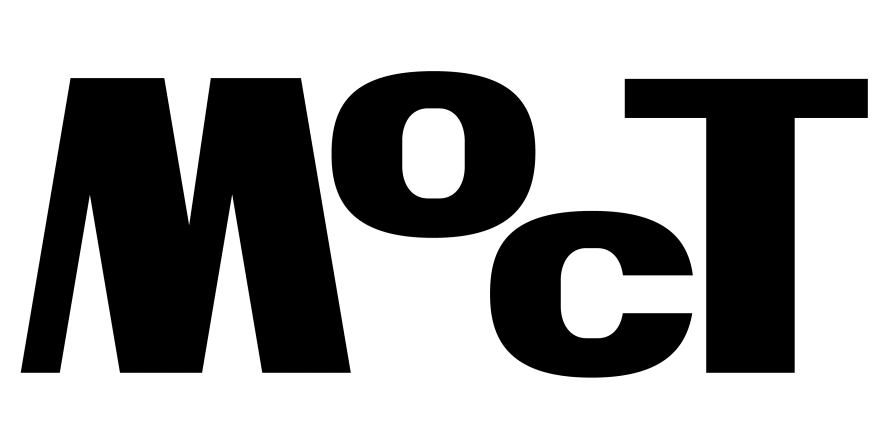Patricia Couvet and Anastasia Marukhina, co founders of Pickle Bar with Slavs and Tatars
In a steadily more politicized public sphere, language is becoming increasingly weaponized, without enough regard for its empowering and liberating potential. Sturm and Slang is Pickle Bar’s 2024 annual public program, which takes a closer look at the transformation and disruption of languages, slangs, and dialects as a means of forging new ways of being and identity in Eastern Europe, Caucasia, the Baltics, Central Asia, the Middle East, and their significant diaspora communities in Berlin. Since 2020, Pickle Bar (a non-profit art space located in Berlin’s Moabit district founded by artist collective Slavs and Tatars with curators Anastasia Marukhina and Patricia Couvet) has become a platform where performances, readings, and workshops aim to move beyond the traditional mode of presentation, to become a space of hospitality where different communities come together in Berlin.
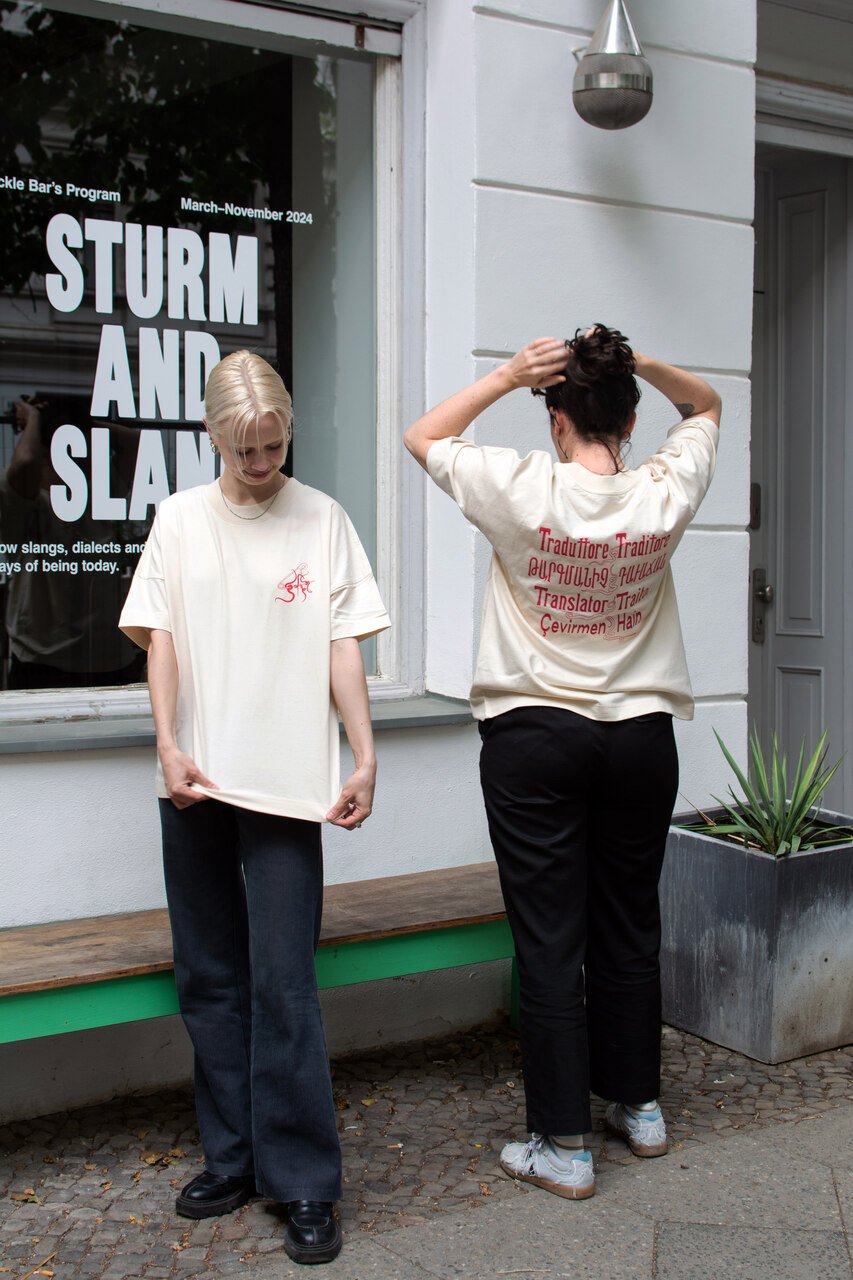
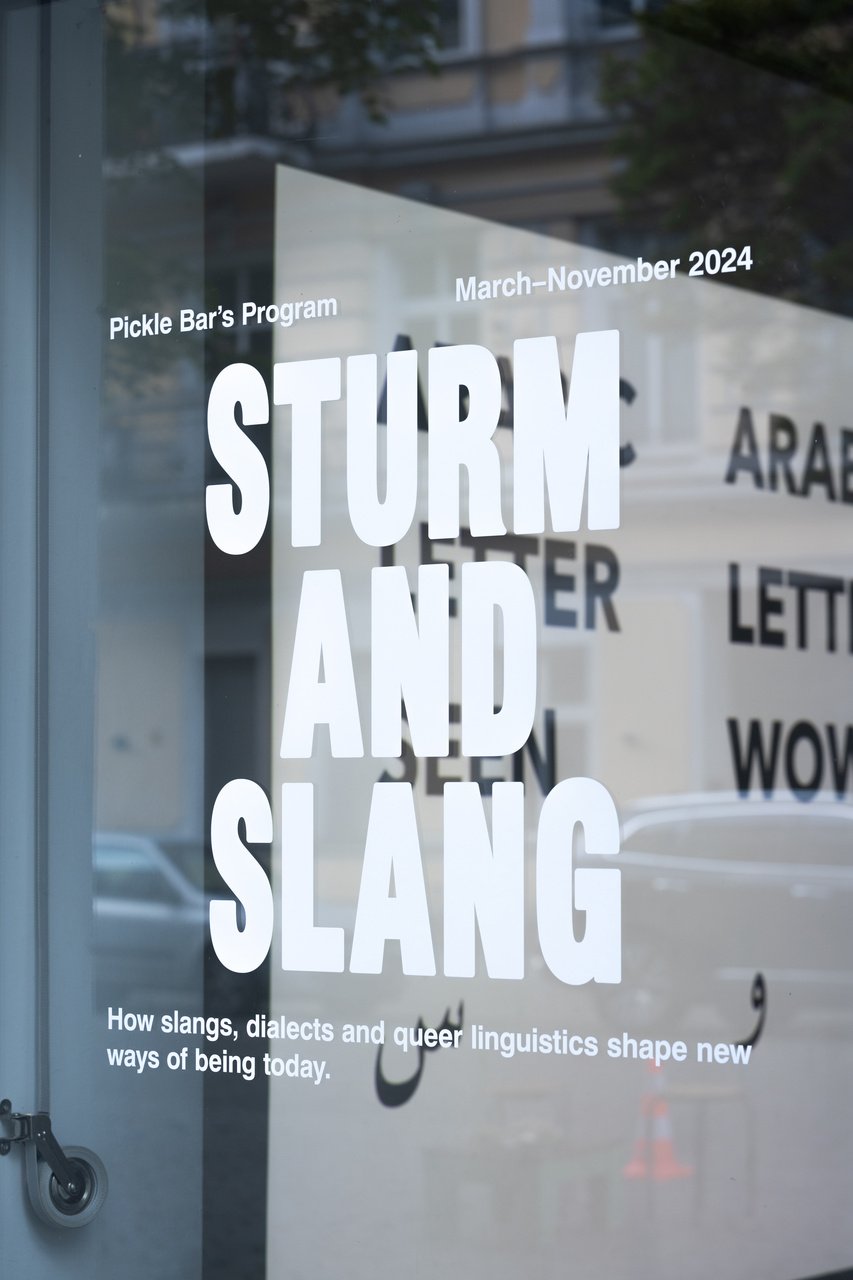
Throughout history, language has been systematically used to assert control, to delegitimize belonging, and to disassociate groups of people who look and act differently from those in power. In recent years, digitalization and the rise of AI have only further accelerated and amplified the role of language as an instrument of aggression. Sturm and Slang explores the shadows from which forms of language resistance are often conceived, whether by artists, writers, performers, or activists. The program intends to illuminate the complex processes of adaptation, evolution, and hybridization in the face of geopolitical changes and cultural upheavals, and celebrates and redeems the fluid nature of language as an agency of self-determination and empowerment. Sturm and Slang further challenges language as a means for self-emancipation.
The program presents 12 events and a commissioned mural – On Manners of Dance and Ecstasy by Iranian artist Mina Masoumi, all taking place from April to November 2024 at Pickle Bar in Berlin. Additionally, two texts by Zura Jishkariani and Yevheniia Stepko were commissioned for Pickle Bar’s online editorial platform, and a T-shirt Traduttore, Traditore was developed by graphic designer and researcher Garine Gokceyan. Performances, along with panel discussions, poetry readings, and workshops, aim to investigate language acoustically, visually, and semantically, and provide a platform to delve into the multifaceted nature of linguistic transformations and language inclusivity.

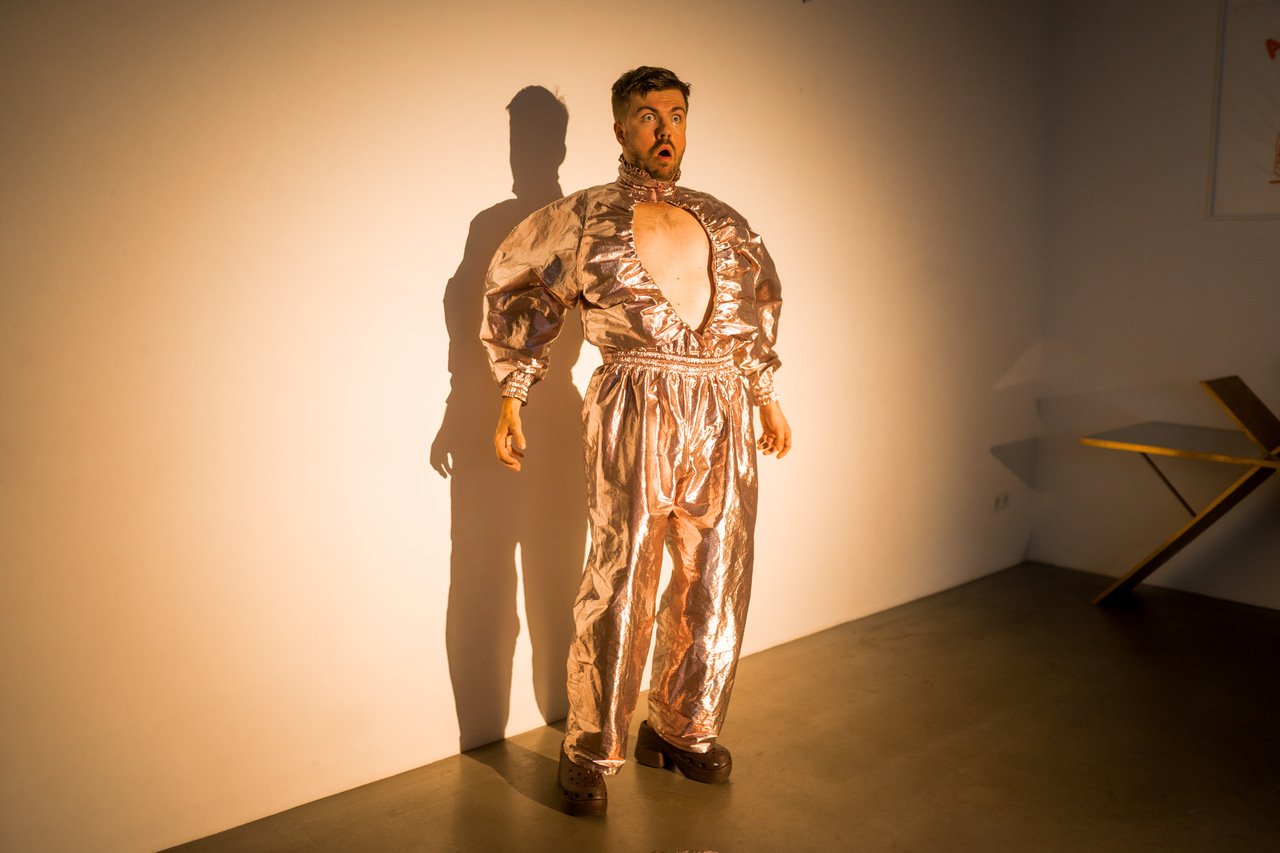
The inaugural performance featured the Tbilisi-based sound artist Nino Dava, who presented a new performance Leti — ლეთი, based on her ongoing research about the linguistic dynamics of the Svan, a language spoken in Svaneti, a region in Western Georgia, Caucasus. Alienated and marginalised during Russian Imperial rule, Svan culture is often the object of ridicule in Georgian anecdotes, even today. Dava breaks down Svan folk poetry and tales into rhythmic phrases that can function in software algorithms, the research emphasizing the phonetic beauty of the ancient language, which is on the edge of extinction. The rhythmic impulses are further developed and merged with heavy industrial noise or traditional Svan scales, resulting in a new auditory form.
In his latest performance, Delighting, which premiered at Picke Bar, Warsaw-based artist Daniel Kotowski explored the space of multiple interpretations and translations between the visual language of the body and spoken words. Born deaf and not using spoken language, Kotowski used this performance to highlight how aesthetics, while appearing harmless, can conceal subtle forms of exclusion – as mainstream culture often idealises and sidelines bodies, languages, and experiences that differ from the norm. Kotowski stages a powerful commentary on how different signs can be misinterpreted by those who know or don’t know sign language: dressed in a costume designed by young Polish designer Paweł Włodarsk, he performs body movements signaling delight, danger, and horror.
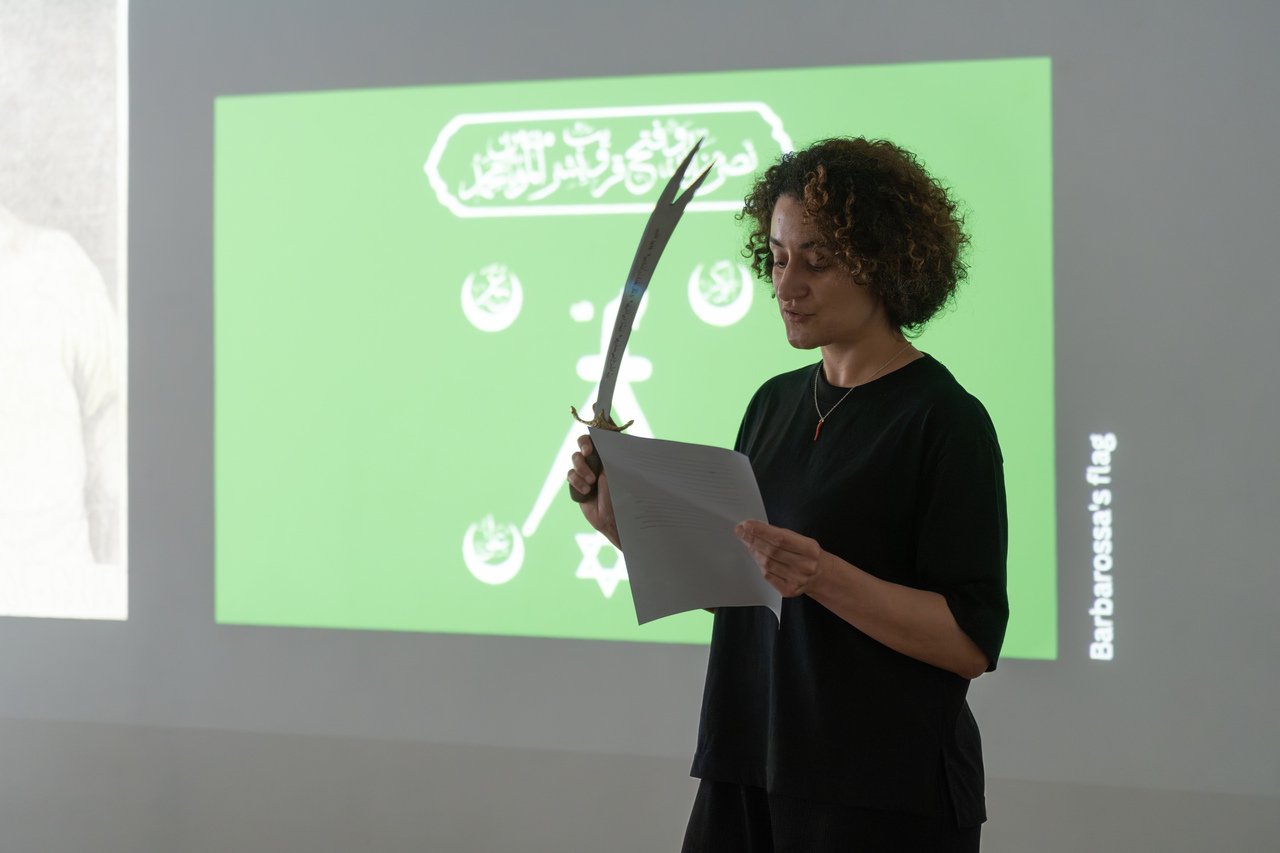
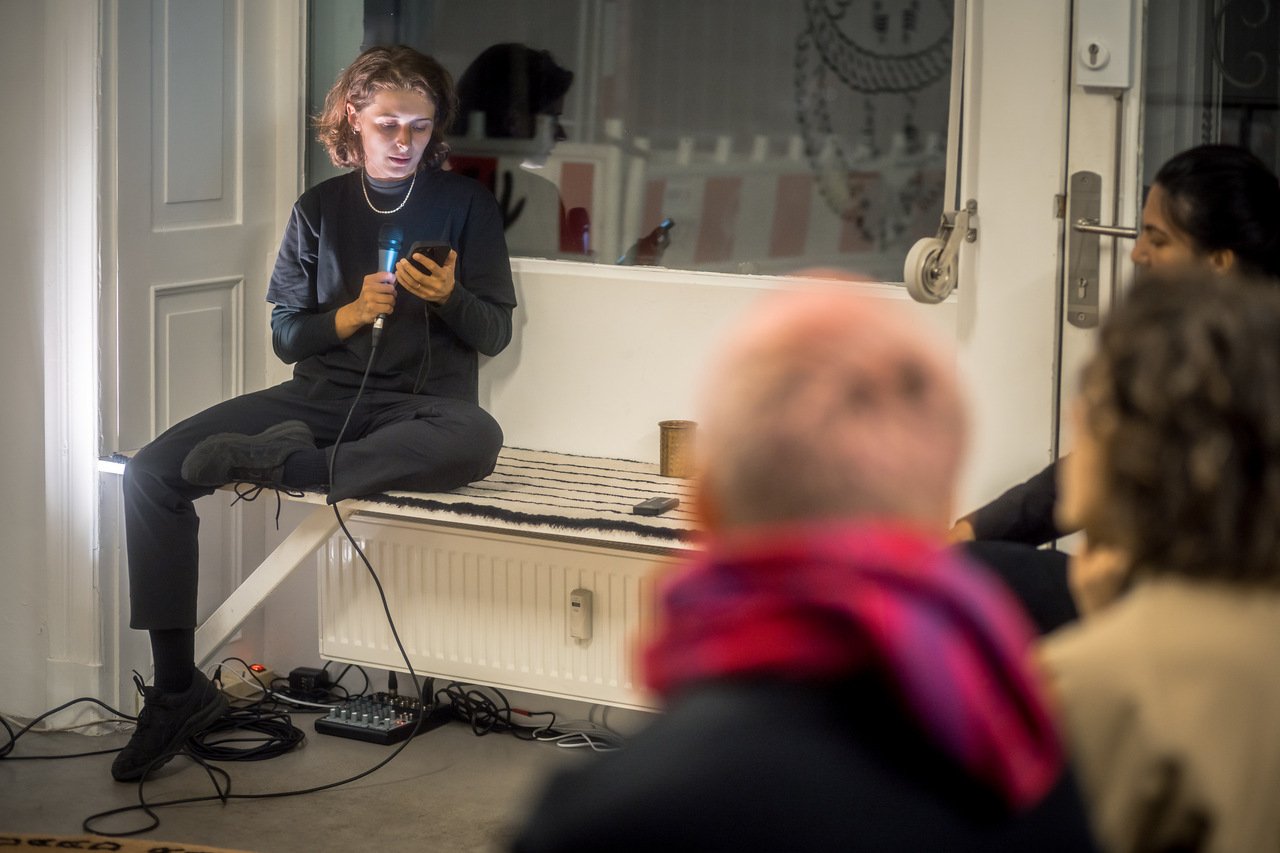
Looking at the poetic side of language, and its potential to operate beyond common sense, as well as its ability to transmit and transform meanings through cultural translation and transliteration, Sturm and Slang creates a place for showcasing a different way of storytelling by combining political and pop culture references and examining critical and creative functions of words. Another example is Fatma Cheffi’s performance Steal Steel Still Fatma, which combines references to Islamic culture and rap music to question the hegemony of certain forms of speech, more specially in relation to the coloniality of the French language on the African continent. Evolving around Zulfikar, a curved sword with a separate blade often represented in Shia culture, her reading mixes personal experience with language and reflection on mistranslation and slang. In doing so, she offers an important example of language reclamation, where words are built upon counter hegemonies.
Sturm and Slang looks at artistic practices that take language from the subordinate structures of linguistics and reclaim its livelihood and diversity through gestures of rebellion, survival, and solidarity actions. Agnė Joksė’s performative reading Lezbynai retells an erotic love story about lesbian love taking place in the Lazdynai District in Vilnius where the artist grew up. The architecture of the neighbourhood is set as a panopticon, confusing the public and private. Jokšė’s story creates an unbridled sexual fantasy where language/wording reclaim the space for a queer linguistics.
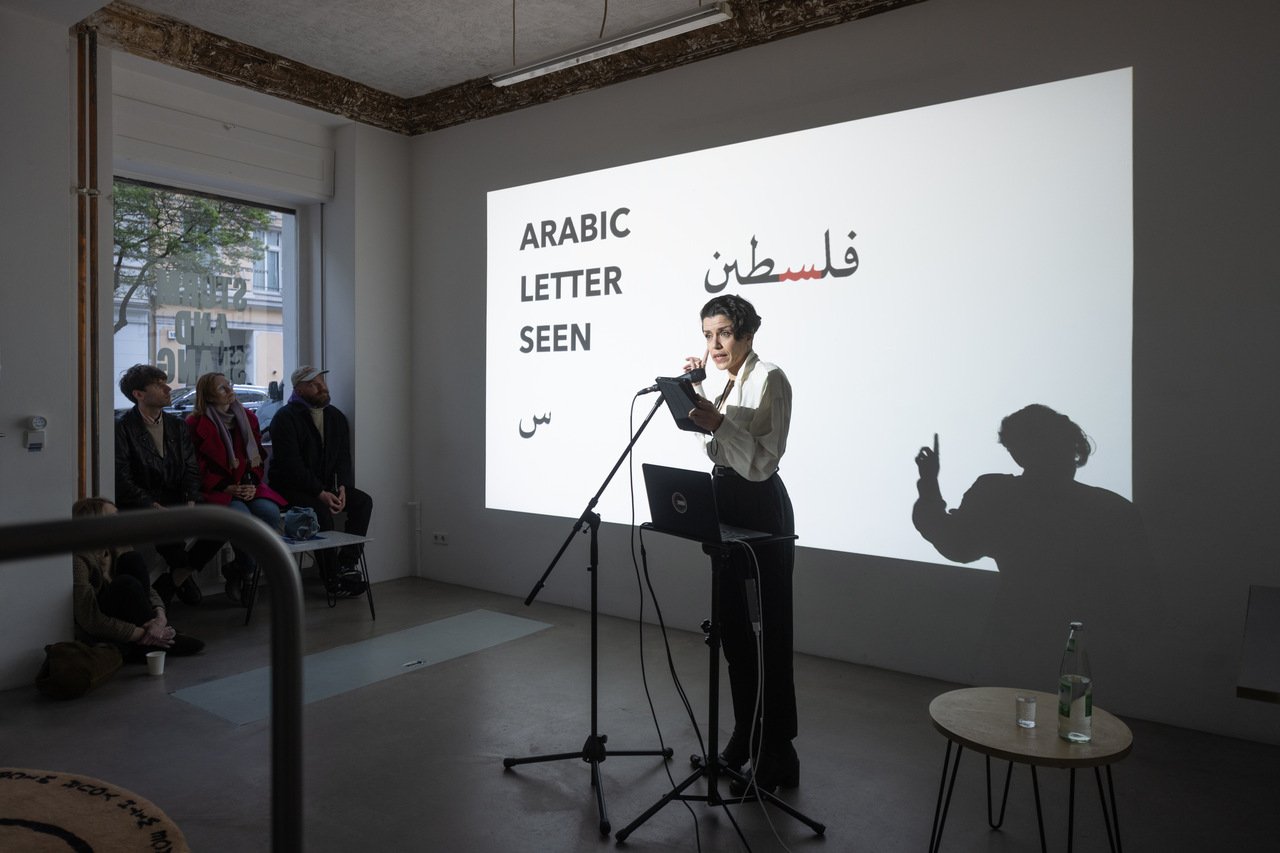
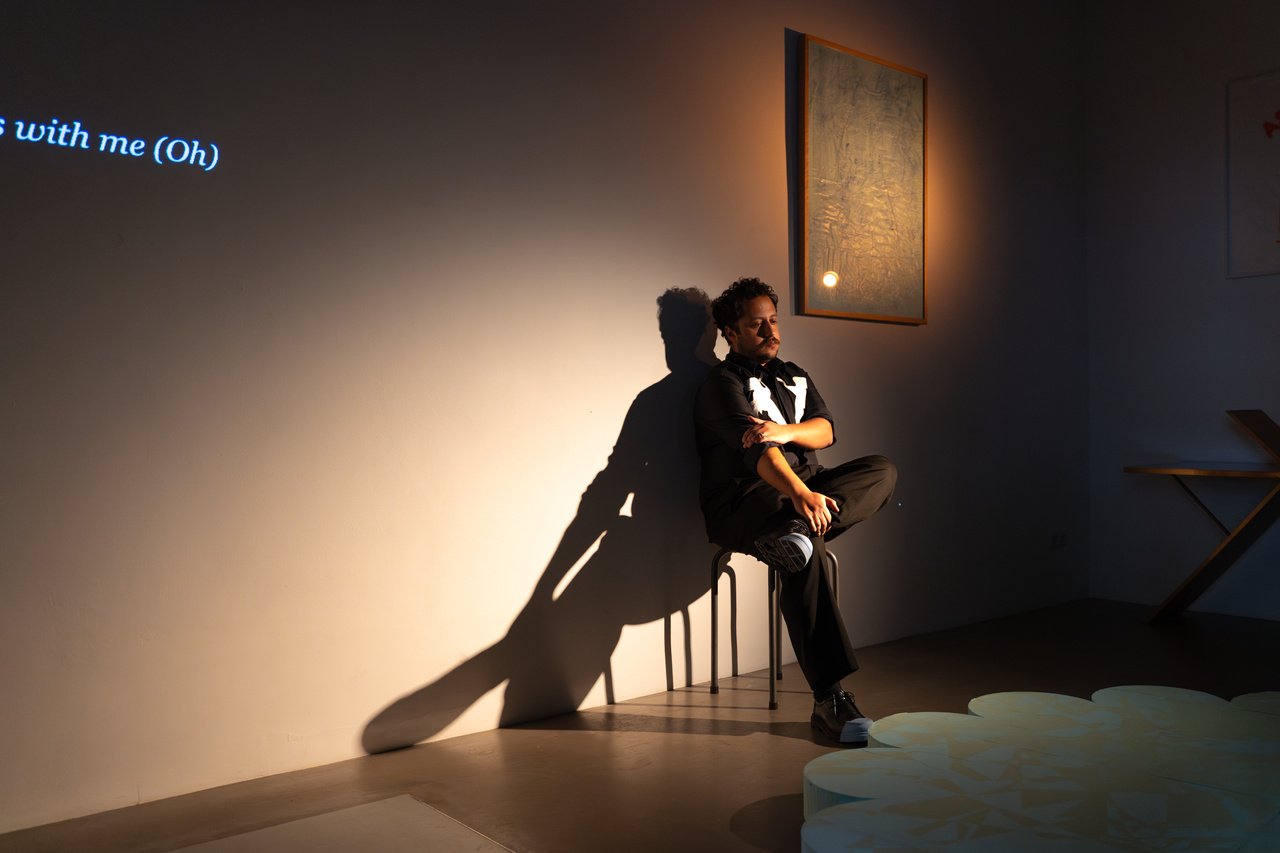
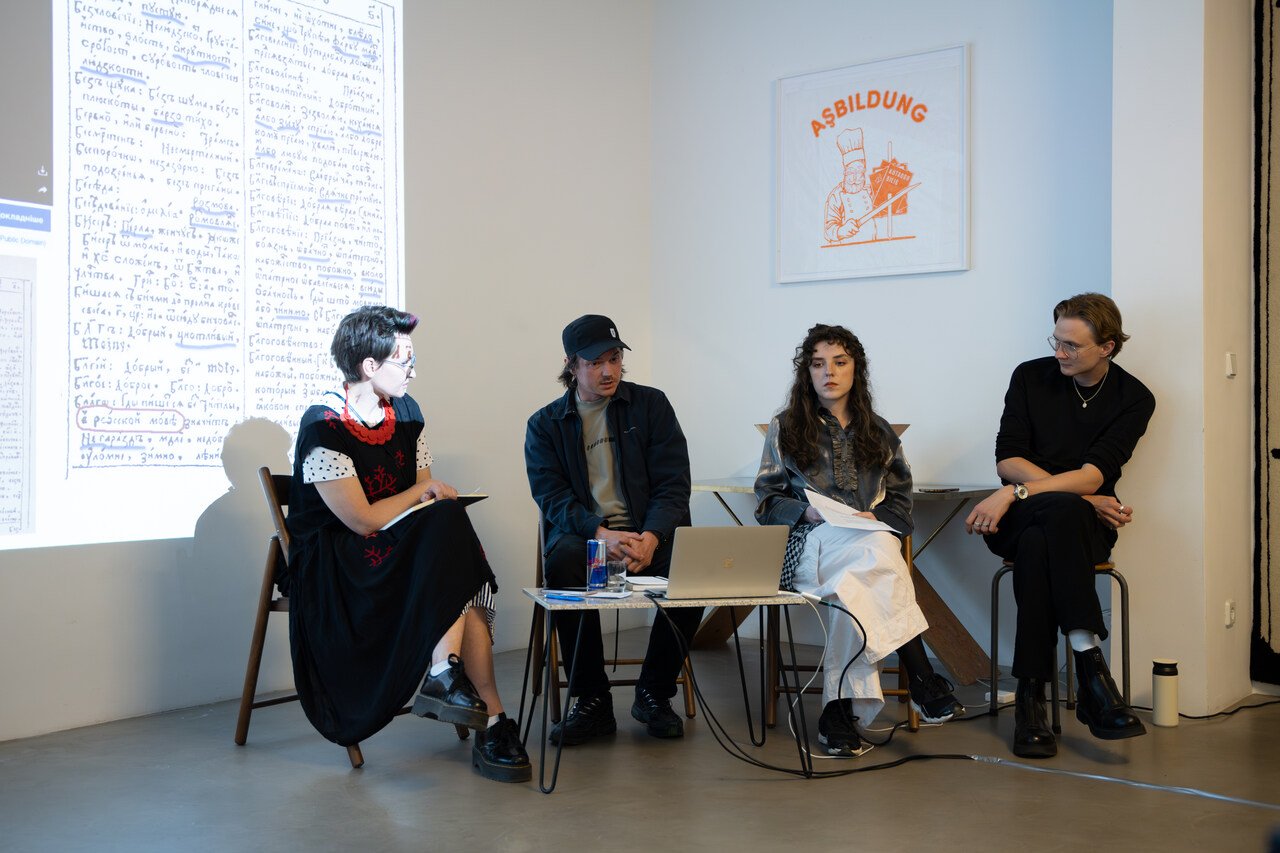

For each annual program, one work is presented at Pickle Bar for the duration of the program. Sturm and Slang introduced On Manners of Dance and Ecstasy by Tehran-based calligrapher and visual artist Mina Masoumi, a piece that interlaces the words composing the title. “در آداب” (on manners) serves as the introduction, guiding the eye through the intricacy of the letters composing the words “رقص” (dance) and “طرب” (ecstasy), which spiral around it like a complex knot. Symbolising the motion of a dancer, the work highlights the dynamic nature of calligraphy, bridging visual and auditory experiences.
The program also presents the performances Arabic Letter Seen س Arabic Letter Wow و by Urok Shirhan; Laughing on the River, Your Eyes Drown in Tears by Hussein Nassereddine; the stand-up comedy set Jokes by Mila Panić, Alternative Women’s Discourse in Tatar Satirical Magazines in Late Imperial Russia – a lecture by Diliara Brileva; a storytelling-session in dialogue with Mekhitar Garabedian and Garine Gokceyan, and a workshop by Qalqalah قلقلة. There were also two panel discussions: Surzhrealism, about surzhyk – a local pidgin widely spoken in East Ukraine – with Yevheniia Moliar, Zhennia Stepko, Vova Vorotniov, and Khele, beshe! / Хэлэ , ᠪᠢᠴᠢ!, dedicated to various perspectives on the role of language in shaping the identity of the Buryads, a Mongolian people indigenous to Eastern Siberia, with Natalia Papaeva, Timur Zolotoev, Tudebei Khandama and Agnieszka Matkowska.
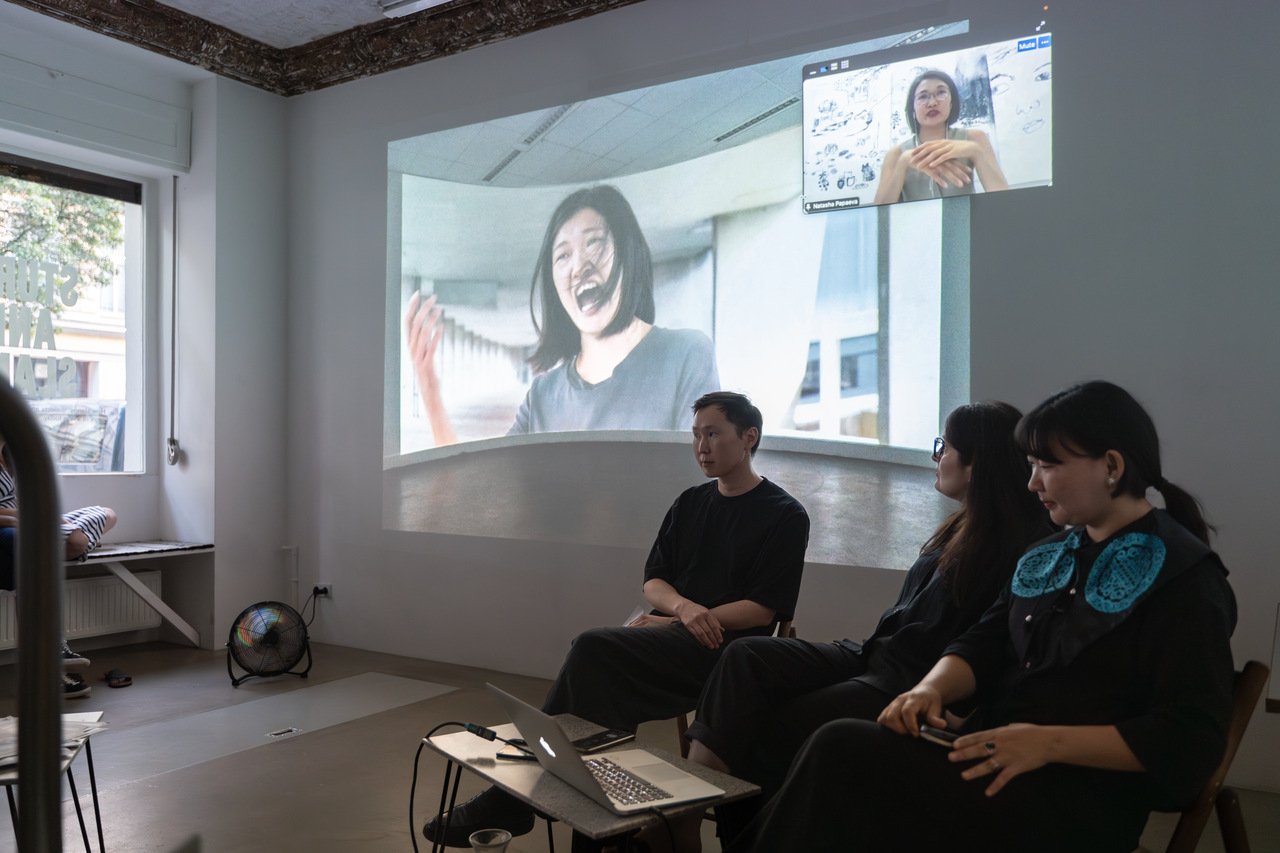
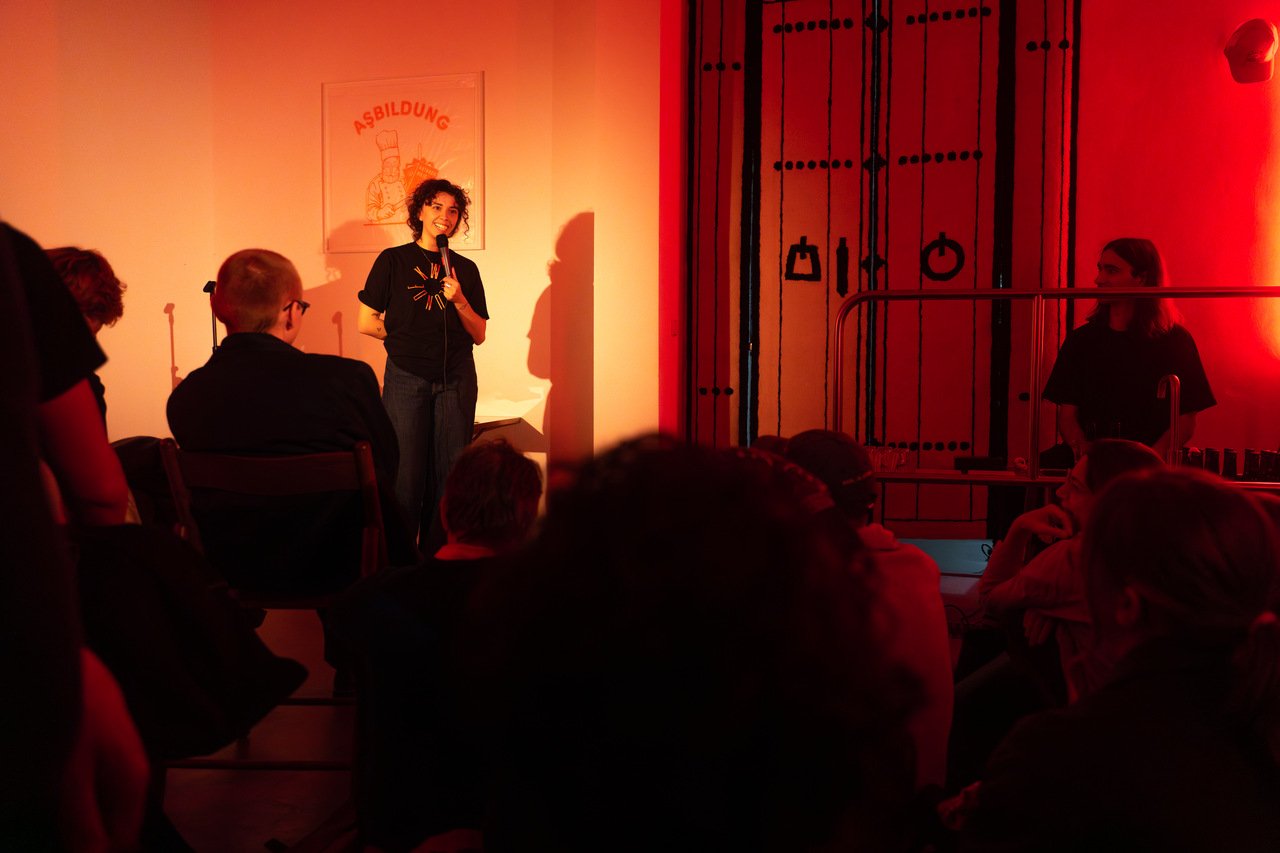
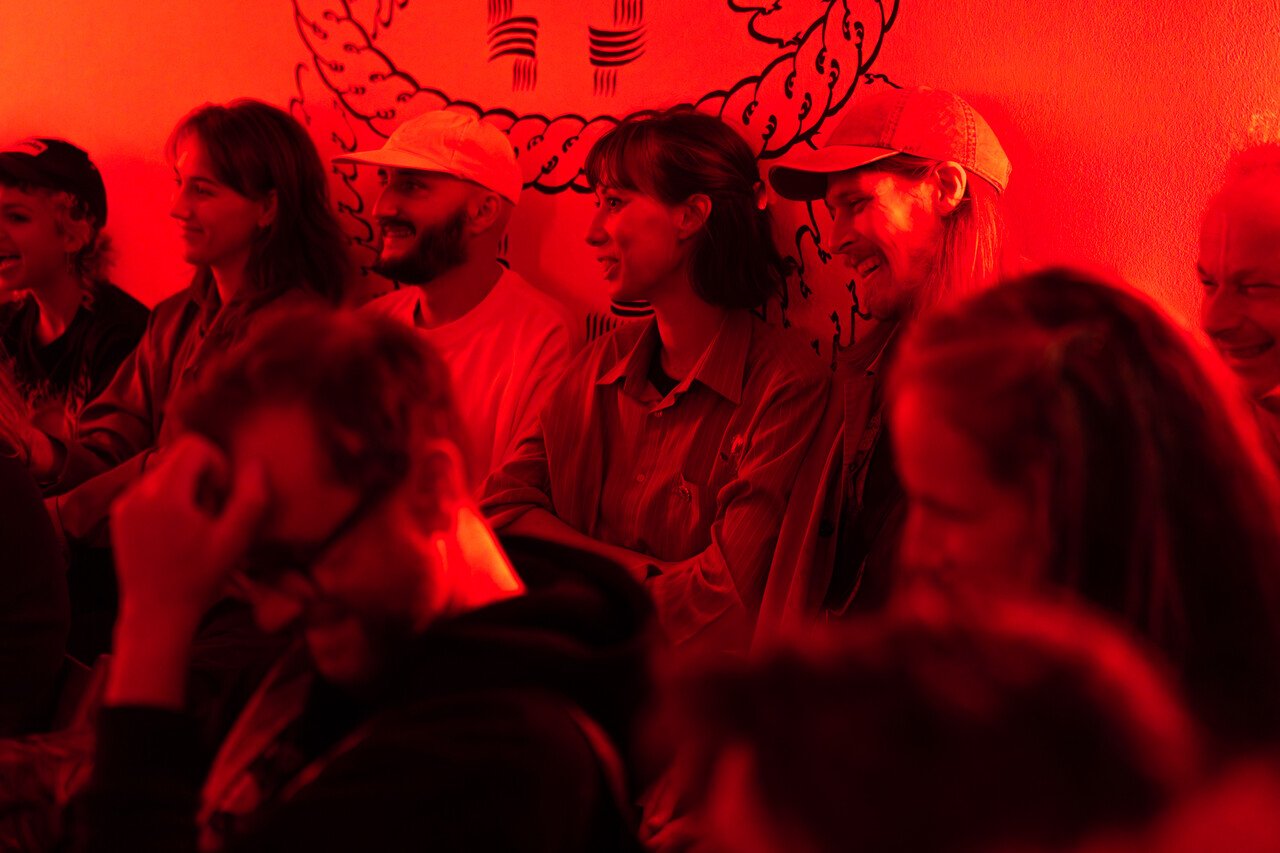
Artist(s): Diliara Brileva, Fatma Cheffi, Nino Dava, Mekhitar Garabedian, Garine Gokceyan, Agnė Jokšė, Tudebei Khandama, Daniel Kotowski, Mina Masoumi, Agnieszka Matkowska, Yevheniia Moliar, Hussein Nassereddine, Mila Panić, Qalqalah قلقلة, Urok Shirhan, Vova Vorotniov, Timur Zolotoev
Exhibition Title: Sturm and Slang
Venue: Pickle Bar
Place (Country/Location): Berlin, Germany
Dates: 22.03. – 04.12.2024
Photos by: Images courtesy of Pickle Bar
